Stamps Finalists to Present at 2019 Biodesign Challenge Summit in NYC
The Stamps School’s project, Gnosis, demonstrates how biodesign can be used to help detect and destigmatize sexually transmitted infections.
A team of students from the Penny W. Stamps School of Art & Design at the University of Michigan has been selected as a finalist to present at the Biodesign Challenge (BDC) Summit in New York City. The Biodesign Challenge is an international student competition and educational program in which participants design bold, new, applicable ways to harness living systems and biotechnology to address challenges of the 21st century. Gnosis was chosen to represent the Stamps School at the BDC Summit and will compete against 36 teams from nine countries around the world.
The Stamps School’s team, led by Professor Deepa Butoliya, developed their idea for Gnosis in Butoliya’s BioDesign Competition course, where students worked in teams of 4-5 and collaborated with expert advisor Dr. Marcus Ammerlaan, a bio-scientist in LSA’s Ecology and Evolutionary Biology department. Throughout the winter semester, both Butoliya and Ammerlaan challenged their students to think about how their project could make an impact on society and culture.
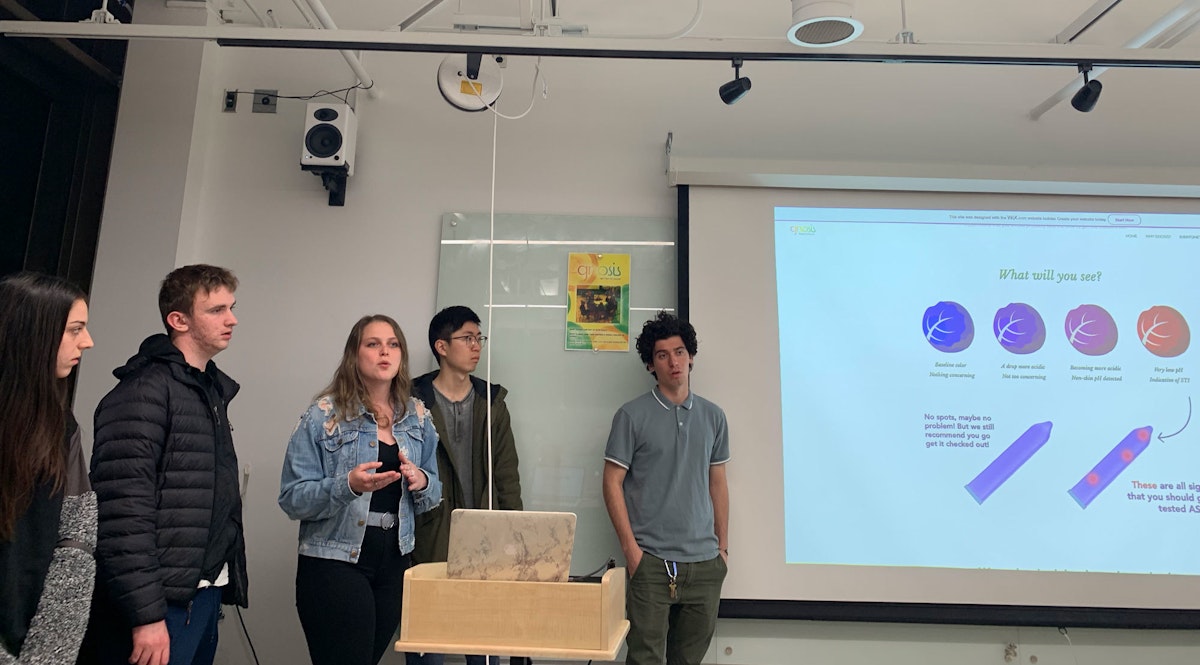
The Gnosis team rose to the challenge with a condom that can help to indicate sexually transmitted infections. The condom uses the simple technique of testing the pH of sores via an organic, cabbage juice based lubricant that changes color in the presence of an STI. This at-home test aims to encourage people to seek medical treatment, help destigmatize STIs, and open up honest conversations about sexual health. While the Gnosis product is a proposed design concept, the science behind it is viable.

“In past lab courses, I have done numerous experiments using color-changing visual indicators, most recently in biochemistry lab,” said Jesse Adler, a Gnosis team-member and recent U-M graduate with a bachelor’s degree in Biomolecular Science.
“To be certain that the science was there to support the concept, I consulted with Dr. Ammerlaan and many medical professionals at the University of Michigan Medical School and University Health Services. Everyone I spoke with was super excited about the concept and eager to contribute in some way. Feeling that kind of support across departments, from professionals and professors who have never met me, spoke to the collaborative, encouraging environment on campus that can only be described as ‘The Michigan Difference.’”
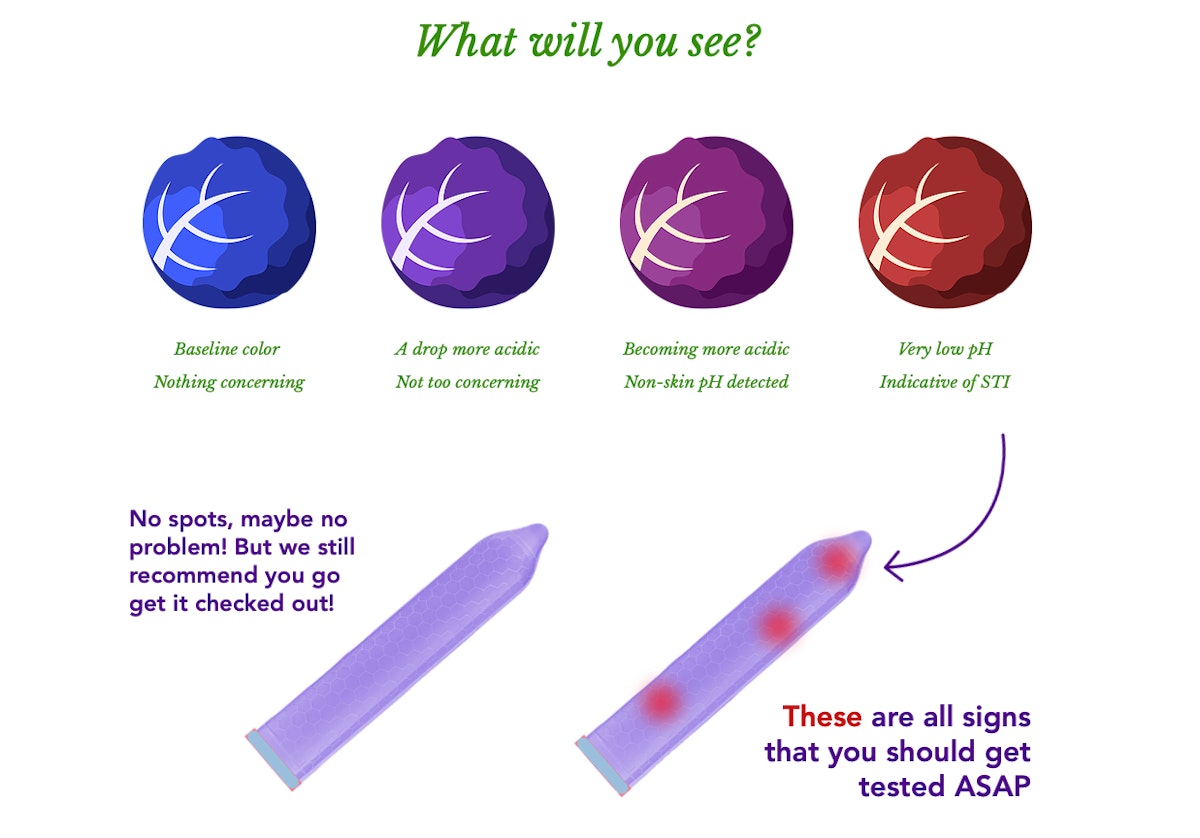
The Gnosis team also envisioned campus workshops on sexual health to promote awareness and address the stigma around sexually transmitted infections. These workshops provide interactive experiences to educate, empower and normalize STIs with meaningful facts statistics and personal stories.
According to recent Stamps alum and Gnosis team-member Alexa Smith (BA ‘19), the destigmatization of STIs is a critical need. “When we presented our product in class, I asked my classmates to raise their hand if they know anyone who has or had an STI diagnosis. Not one person rose their hand. This surprised me because based on statistics, every single person in the room should have raised their hand.”
Smith feels that Gnosis will help to normalize conversations about STIs, paving the way for people to educate themselves, protect themselves, and care for their bodies through appropriate medical treatment.
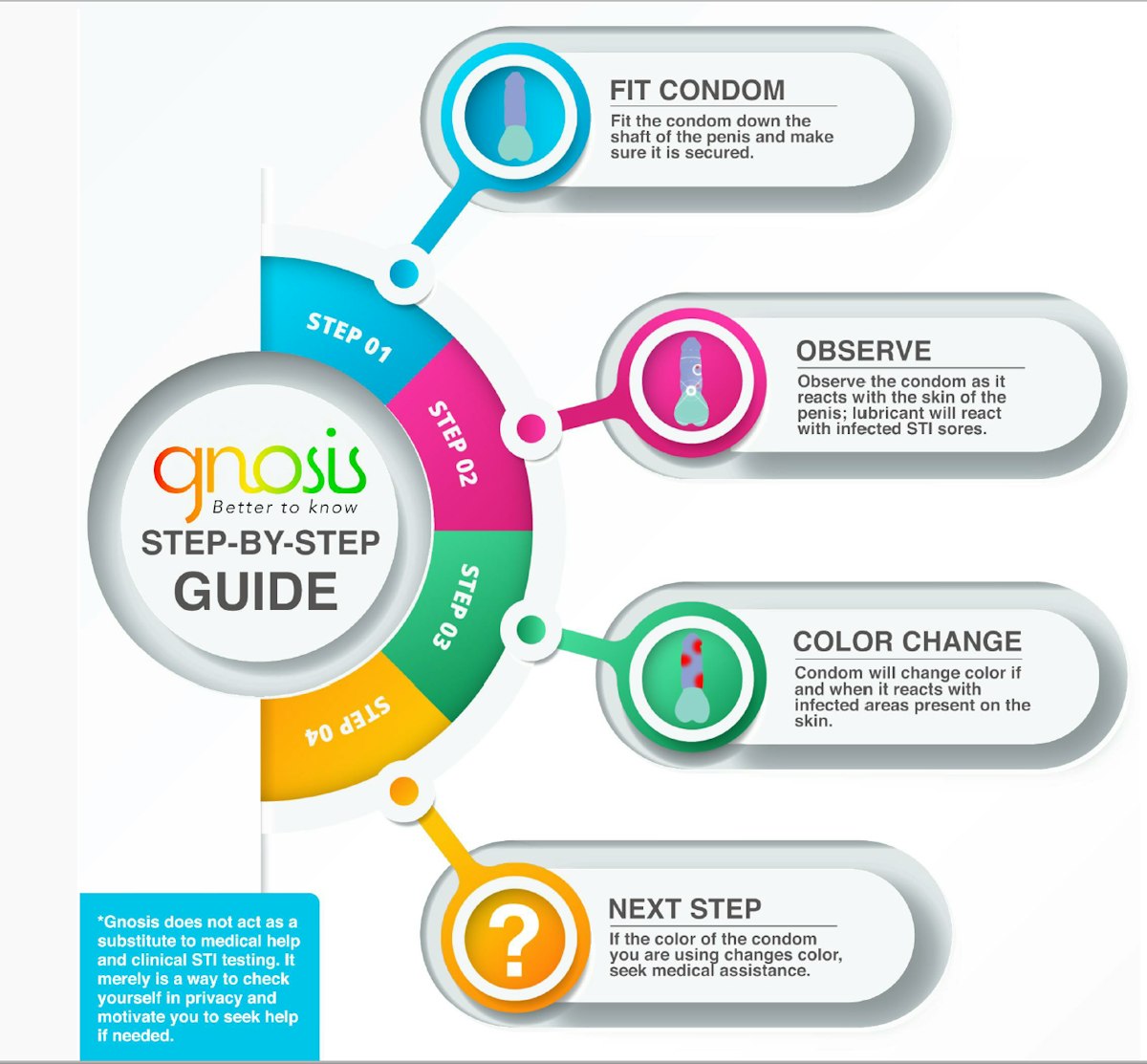
“I am really proud of these students as they have demonstrated the ability to think beyond the mere functionality of the object by thinking on a broader systems level,” Butoliya said. “All the members of the team contributed equally in terms of skills and there was a good synergy in the team.”
“As an LSA student, I had never been exposed to the ideas of speculative and critical design or collaborative work that focuses heavily on human impact and futuristic plausibility,” said Adler. “I loved being challenged to work and think on a cross-disciplinary level, and to create really exciting and strange ideas and artifacts.”
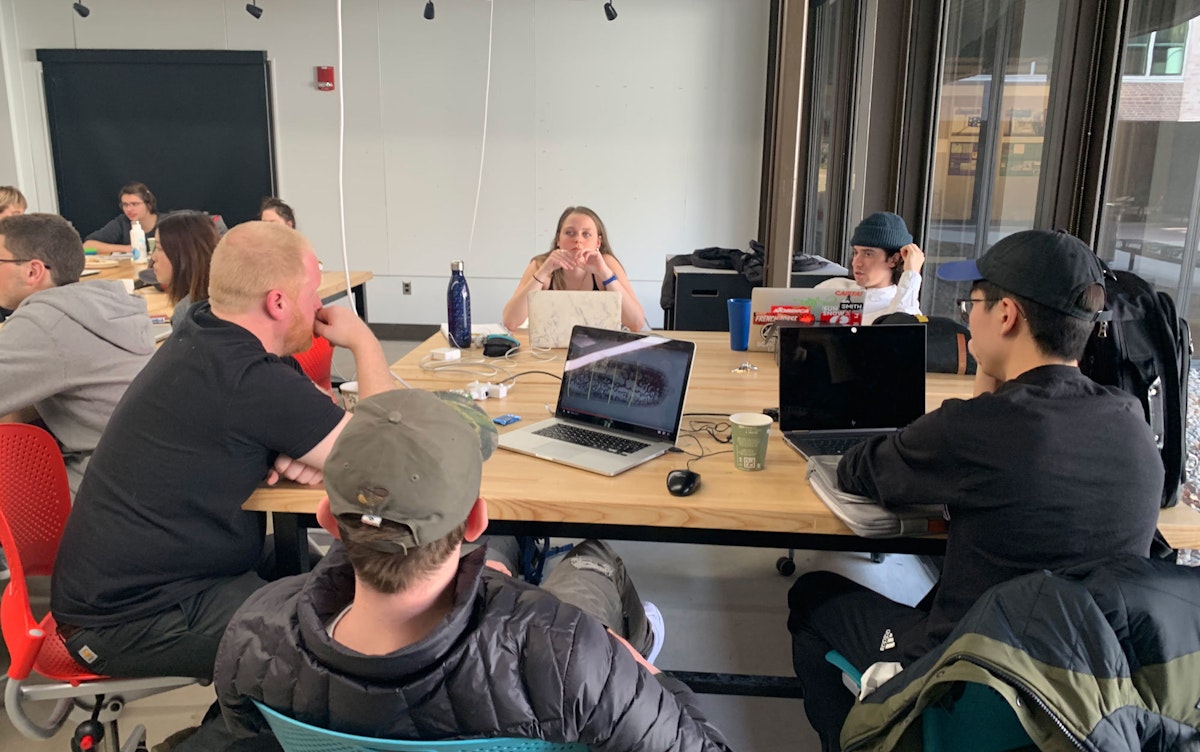
At this year’s BDC Summit, to be held on June 20-21, 2019 at the Museum of Modern Art and Parsons School of Design, Jesse Adler (BS in Biomolecular Science, ‘19), Alexa Smith (BA, ‘19), Michael Moon (BFA, ‘21), Robert Gotham (BFA, ‘19) and Evan Vollick-Offer (BFA, ‘20) will present Gnosis to a judging panel of over 50 leading entrepreneurs, curators, artists, designers, scientists, and an audience of 400. Students will compete for awards, such as the Stella McCartney Prize for Sustainable Fashion, the ORTA Prize for Bioinspired Textiles Processes, and the grand prize, the Glass Microbe.
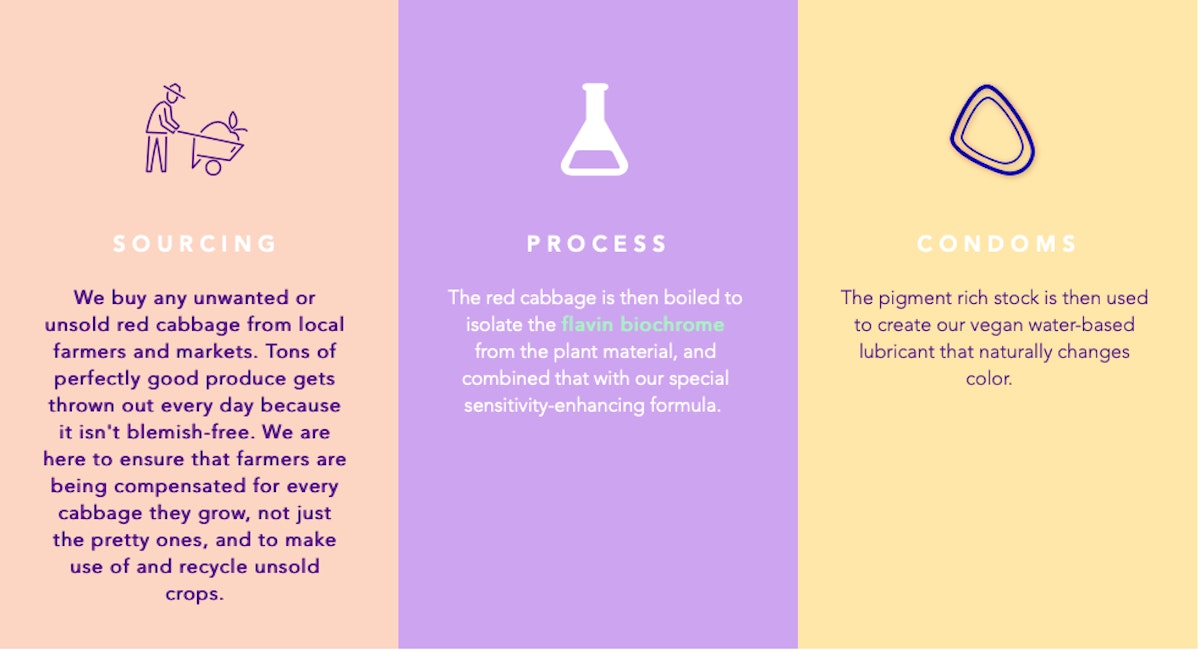
“When I found out that I was a finalist, I was really excited because we put so much hard work into this project so to see it come to life was an incredible feeling,” said Smith. “I am very excited to see what is in store for us at the competition, and learn more about other finalists projects as well.”
“These finalists were selected from a competitive pool of over 500 participants from around the world and from across academic backgrounds. Every year, students at the Biodesign Challenge Summit demonstrate fantastic creativity and innovation,” says Daniel Grushkin, founder and director of the Biodesign Challenge. “These students are re-thinking everything from the future of food, medicine, architecture, and even fashion. Their visionary thinking will help pave the way for important changes across industries.”
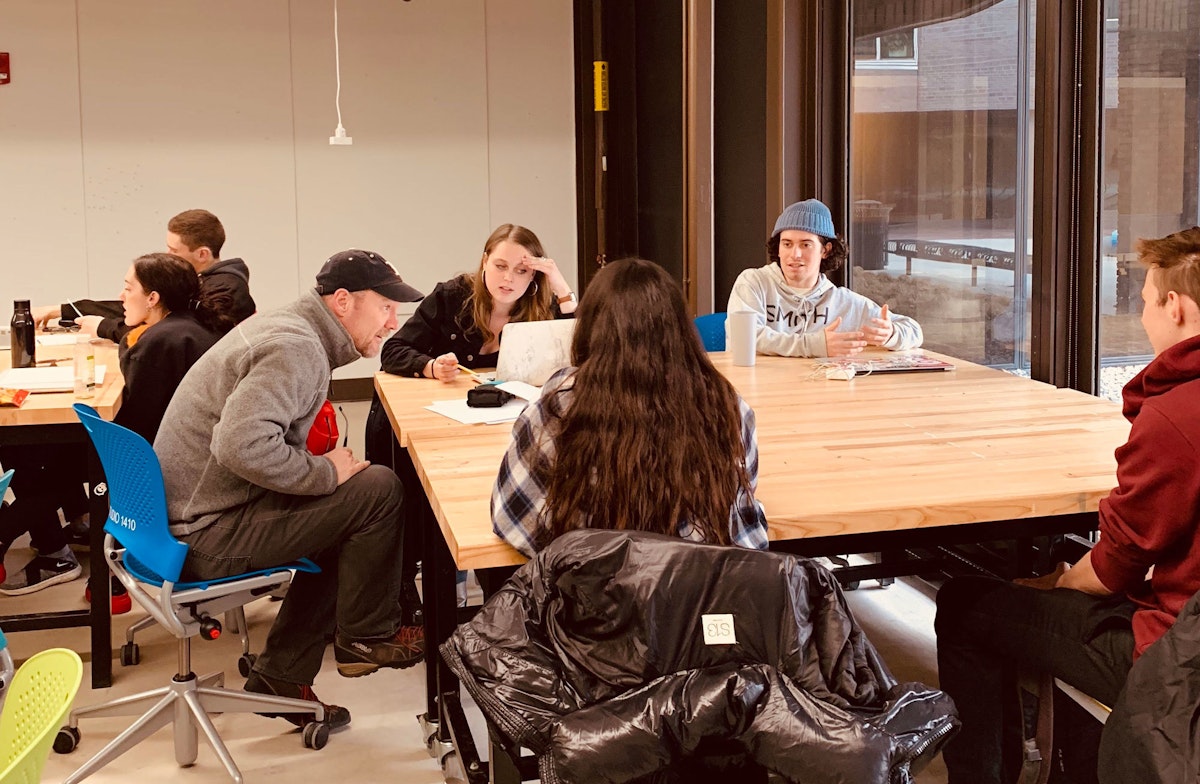
The projects will be celebrated at an exhibition opening at Parsons School of Design on June 20 at 7pm. Members of the public are welcome and can find more information here.
Learn more about the Biodesign Challenge (BDC).